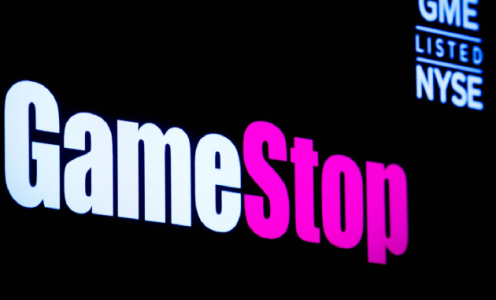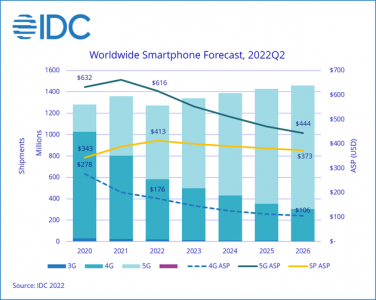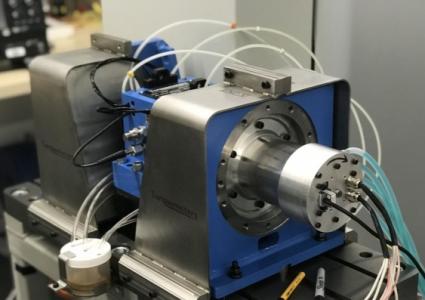your current location is:Home > Finance > depthHomedepth
Meta returns to 'startup day one'

After rushing to the Metaverse, Meta's employees even started to virtualize their workstations. They will have a nominal workstation online, but this does not mean that they can use the previous actual workstation offline. This is because recently, Meta has thrown out a new trick-Hot desking.
According to media reports, Meta's internal notice stated that most employees would no longer have a fixed location in the office, but instead would be required to book desks before arriving at the office. Meta claims that this will be the new work experience. In this regard, the employees did not buy it, and made a strong protest, believing that the company's decision was "out of touch with reality" and was looking for an excuse to reduce costs.
Indeed, Meta's life on Earth is extraordinarily difficult right now.
The global inflation situation is severe this year, and merchants have become extremely cautious about online advertising. Meta's main advertising business has been hit hard. Although the Metaverse is full of imagination, it is difficult to see returns in the short term due to high R&D costs and long R&D cycles.
Meta shares have fallen nearly 60% this year. As of the close of U.S. stocks on September 23, local time, the market value of Meta closed at $377.359 billion, the lowest point since the outbreak of the new crown epidemic, and has shrunk to the level of 2017.
Affected by this, Zuckerberg's net worth has shrunk by 71 billion US dollars, and his ranking in the world's richest list has also dropped from 3rd to 20th, which is the lowest personal ranking since 2014.
For Zuckerberg, who has long been financially free. The turmoil of tens of billions of dollars does not have a real impact on an individual's life.
Recently, Zuckerberg also posted a photo of himself and his wife Priscilla Chen on social platforms, announcing that they will welcome their third daughter. Zuckerberg and his wife already have two daughters, Maxima, 7, and August, 5.

But for ordinary Meta employees, the company's market value shrinks, and their lives will be directly impacted.
For a long time, Silicon Valley's technology companies have been the epitome of "freedom", "creation", "high salary" and other good workplace experiences. In the eyes of the public, entering a big factory in Silicon Valley means that you can do creative things, have free commute time, and get a high income far beyond the social average, so you can achieve both work and life.
The open office decoration all over Silicon Valley and the natural scenery and good weather in California have further cast a dream filter on Internet companies. Many people shouted: "The most people want to work on this planet are offices in Silicon Valley!"
Good things cannot last forever. Once difficulties are encountered, the cruelty behind the beauty will be revealed.
In May, Meta admitted that the company was delaying hiring due to "lower-than-expected revenue growth." In June, Zuckerberg publicly stated that Meta needed to "step up" on performance targets to make the company a more stressful workplace. Reduce the number of employees and eliminate underperforming employees; in July, Meta plans to lay off employees, and rumors of reducing office costs by 10% spread like wildfire...
In addition to making small moves on the workstation, the news is that Meta is making layoffs in the form of departmental restructuring to achieve the goal of reducing costs by 10% without attracting public attention. The "killer weapon" of this job is the "30-day list," in which employees who are on the list are fired if they can't find a job at the company within a month.
According to reports, in the past, only employees with substandard performance would be placed on the "30-day list", and now employees with good performance appraisals are also included in the list and are regularly eliminated.
Earlier, nearly 100 Facebook gatekeepers had been fired.

01
Desk wheels are not uncommon in the United States, but are generally reserved for startups and startup incubators. For a company that has entered a mature stage, it is beneficial for employees to have fixed workstations to stabilize the connection between employees and the company, so that employees have a comfortable and familiar working atmosphere and bring a sense of solidity. "Stock grabbing" makes employees feel more uncertain before going to work every day, and invisibly exerts more pressure.
Objectively speaking, the operating cost savings that can be saved by running the “job grab” process within the company is limited.
Rather than controlling costs, perhaps for Meta, which is currently in a trough due to "ALL in Metaverse", it may be the purpose to let employees re-experience the sense of urgency on the "first day of starting a business".
According to Meta’s second quarter financial report for 2022, Meta’s revenue in the second quarter was US$28.82 billion, down 1% from the same period in 2021, which was the first time the company experienced a year-on-year decline in quarterly revenue; net profit in the second quarter was US$6.7 billion, down 36% year-on-year. %, which was the third consecutive quarter of decline in net profit.
During the quarter, Meta's Metaverse Labs lost $2.802 billion. In 2021, the unit lost $10.2 billion; in the first quarter of 2022, it lost $2.96 billion. Cumulative losses in just three quarters topped $15 billion. According to reports, Meta will spend more than $10 billion in the Metaverse this year.
Such a high cost is enough to show that Meta is going all the way in the metaverse.
The decline in stock prices and poor financial report performance this year have made the outside world full of doubts about the prospect of the Metaverse. Zuckerberg needs his employees to rediscover the entrepreneurial passion of Facebook at the beginning of its establishment. He knows that he can only win, not lose.
The impersonal "snatching a station" does help employees understand the company's situation, and it is more likely to break the team boundary for communication, which may inspire inspiration. Of course, it remains to be seen whether the "job grab" can actually be implemented, and Meta's 70,000 employees may not necessarily agree.
Zuckerberg said at the earnings conference: "The Metaverse can bring us a deeper social experience. At present, we are still facing technical and product constraints, but over time, these platforms will release thousands of billion dollar potential.”
At present, if you want to enter the metaverse concept platform under Meta, you must use Meta's VR/AR headset equipment. Although Xiao Zha emphasizes the infinite possibilities of the metaverse, the current revenue path seems to be only hardware devices.
In 2014, Zuckerberg bought Oculus for $2 billion, calling out the ambition that "VR has the potential to reshape everything." Since then, the money made by the “Facebook Family Bucket” from advertising revenue has been continuously invested by Zuckerberg into the AR/VR field.
With Zuckerberg's no-cost investment, Meta has no rivals in AR/VR hardware. The new crown epidemic has effectively driven headsets to become a must-have for home entertainment for middle-class families in Europe and America. In 2021, the global shipment of VR head-mounted displays will be 10.95 million units, and Meta will occupy more than 90% of the market share.
Meta's practice of promoting headsets at the expense of profitability is obviously difficult to maintain in the long term. As the metaverse concept spreads across the industry and more and more opponents are pouring in, Meta, which has gained a first-mover advantage, must change its strategy.
In August, under intense financial pressure, Meta announced that it was raising the price of its Quest 2 headset by $100. According to the teaser, the new headset, Project Cambria, which will launch in October, could cost as much as $800.

02
The social network empire built over the past ten years and the more than two billion users on the platform are the foundation of Zuckerberg's courage to "All in the Metaverse", but the difficulty and cost of seamless user migration are far beyond imagination.
As long as the advertisements can be held back, the use of social networks for individuals is to exchange a multi-level emotional experience with a very low cost of money and more time costs to meet social needs. The hardware equipment, system architecture and other costs required to use a social network are not counted on the head of the social platform.
But into the Metaverse, everything seems to be waiting for Meta to rebuild.
In an interview in June, Zuckerberg predicted that the Metaverse would be successful between 2025 and 2030 and become an important business for the company. "In the long term, we need integration between hardware, software and operating systems to enable the future we want to build," he added.
Up to now, the Meta head-mounted display device is still developed based on an improved version of the Android VROS system.
Zuckerberg has always wanted to implement a self-developed system. However, in January this year, foreign media reported that Meta had canceled the XROS R&D project, and more than 300 team members were transferred to the AR and VR teams. Meta said the move will speed up the development of solutions for each product line. However, the outside world does not buy this rhetoric. System development is an expensive and risky route. When the revenue of advertising business is blocked, Meta must cut off expenses that are hard to see returns.
On the hardware side, Zuckerberg is also at risk.
Zuckerberg told an internal company meeting this year that Meta and Apple are engaged in a profound, conceptual competition in the metaverse, which he believes will determine "where the Internet should go," according to sources.
Apple's virtual reality offerings predate the Meta. Since 2010, Apple has applied for more than 2,000 AR/VR-related patents, and invested in or acquired more than 20 AR/VR business companies. Tianfeng International analyst Ming-Chi Kuo predicts that Apple will release AR/MR headsets as soon as January 2023, and the headset product line may be named Apple Reality, priced at $2,000 to $3,000.
Although Meta's current market share is high, its head-mounted display products have not established enough barriers to competition. There is a lot of room for improvement in the wearing comfort and visual effects of head-mounted display devices. Apple has always not cared about the first-mover advantage, but directly throws out products with the best experience in the same industry to grab the market. Once Apple's product comes out, it's really worrying whether Meta can withstand the shock.
From all perspectives, the Metaverse born in the 1990s cannot be regarded as a new concept of Internet development proposed by Zuckerberg. What he wants to do is to combine the core elements of the Metaverse, namely virtual, 3D, rendering, and interoperability. , so as to be the most suitable for the market and to achieve a profitable state.
However, from the actual effect, the metaverse that Meta smashed with money is not only unattractive, but also like a half-finished product.
The bulky headset makes it difficult for users to quickly experience the Metaverse from the entrance, and it imposes great restrictions on the threshold. It is very difficult to promote virtual avatars that completely correspond to real people, and they are reduced to game pinch face in use. With the rise of short videos, the loyalty of young users to Facebook-based social software has declined, and Meta may even lose its biggest traffic advantage. Currently, Meta no longer enforces the use of a Facebook account to log in to the headset.
For Zuckerberg, this year he did start the metaverse concept in the industry, but Meta's benefits from it are too limited. The days of entering the Metaverse are so oppressive, and making money from advertising is still the best solution at the moment.
related articles
Article Comments (0)
- This article has not received comments yet, hurry up and grab the first frame~













